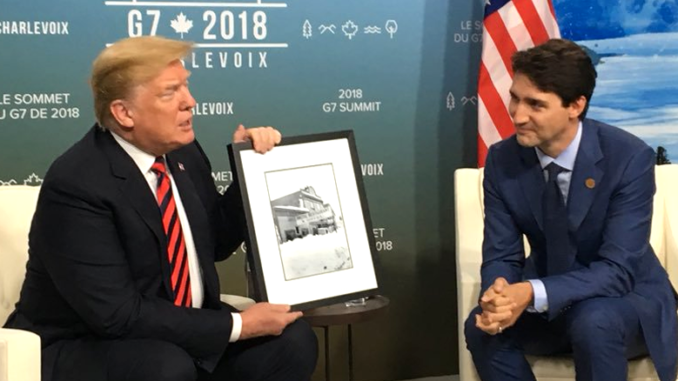
The NAFTA agreement, which President Trump has repeatedly criticized as the worst trade deal ever, will be dissolved in the near future at the agreement of all three signatory countries.
In its place will be the USMCA, which rolls off the tongue as “usmecca”, an acronym that will likely go unused.
Whether President Trump’s assertions are true or not depends entirely on how broadly a person defines “greatly”. According to Politico:
People briefed on the outlines of a revamped deal described changes in language governing dairy imports, dispute resolution between countries, limits on online shopping that can be done tax free, and limits on the U.S. threat of auto tariffs.
The BBC has specifics:
- On cars, Canada and Mexico have a quota of 2.6 million cars they can export to the US as a protection for their car industry if the US imposes a 25% global tariff on car imports
- On dairy, US farmers will have access to 3.5% of Canada’s $16bn-a-year dairy market.
- In addition, 40% of car parts of vehicles produced in the USMCA area must be made in areas of North America, paying wages of $16 an hour
- On the lumber (or wood) industry, Canada secured protection from US anti-dumping tariffs through the preservation of a dispute-settlement mechanism.
This means that the greatest effect on average citizens of both countries will be to pay higher taxes for online purchases. Beyond that, it will allow for more US dairy products to be imported into Canada at market prices. What Canada gets in return is a promise for the United States to stop threatening them on key exports.
So, simplified: The US gets a direct market benefit, and Canada gets promises. This is a win for Donald Trump.
What that simplistic equation fails to consider, however, is the same issue which was recently seen in South Korea. Access to the market is not helpful when demand isn’t there.
If all of Canadian purchases were made available on a single shelf in a supermarket, we have taken away a few inches of shelf space for Canadian products and put American products in their place. But demand for American products has withered in Canada. It’s not just that the recent trade disputes have caused prices to rise and purchase arrangements to be renegotiated.
Canadians no longer like Americans. Some do, absolutely; but the overall view of America in Canada has gone from one of the highest rated countries in the world to the lowest beneath North Korea. That is entirely reflective of their views on Trump and his policies. The previous historical worst was under George W. Bush, when for one year equal amounts of Canadians had positive and negative views of the U.S. At the last polling, it had moved to 50% negative and 47% positive… and that was before the trade disputes ramped up.
The slight market gains enacted by the trade agreement are greatly offset by the reduced purchasing which comes from consumers having a negative view of the brand… and in this case, the brand is American products.
USMCA is also, considering the thousands of products that NAFTA covers under 8 sections and 22 chapters, almost the same exact deal as NAFTA. This is the equivalent of saying that a meal goes from the worst ever to being a superlative meal because of the addition of a free cup of coffee afterward, after the public spectacle of overturning tables and demanding a free cup of coffee.

3 Trackbacks / Pingbacks
Comments are closed.